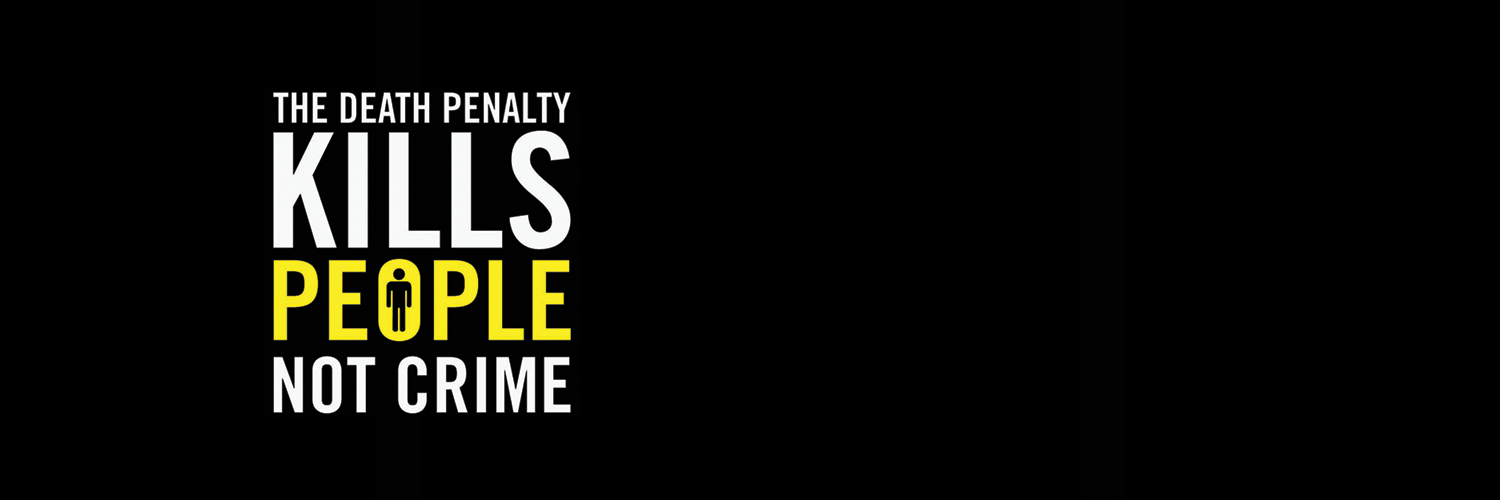Global executions fall to lowest level in a decade, despite regressive steps by a minority
“I was in shock when the judge told me I had been sentenced to death. I hadn’t done anything to deserve to die. I couldn’t believe the level of injustice. I’d never imagined being executed before that moment.”
Noura Hussein was sentenced to death in May 2018 for killing the man she was forced to marry after he tried to rape her. In a chilling account, Noura revealed how it felt to be sentenced to death and the feeling of loneliness that engulfed her after her family cast her aside.
“The first thing that came to my mind was, ‘How do people feel when they are executed? What do they do?’. My case was especially hard as, at the time of sentencing, my family had disowned me. I was alone dealing with the shock.”
The case caused international outrage and, after major campaigning efforts from Amnesty International and others, Noura’s death sentence was overturned. Instead she was given a five-year prison sentence and financial compensation, customarily known as Diya or “blood money” of 337,500 Sudanese pounds (around US$8,400).
Yet for Noura, the struggle continues, after state prosecutors filed an appeal to the Supreme Court for her death sentence to be reinstated. Her fate still hangs in the balance.
For those of us who believe that human life must hold the highest value, taking it away is the lowest act. For more than 40 years, Amnesty International has campaigned for the end of the death penalty – the premeditated and cold-blooded killing of a human being by a state in the name of justice. This cruel, inhuman and degrading punishment is not only a violation of the most fundamental human right — the right to life — but it serves no purpose whatsoever.
There is no credible evidence that the death penalty has a unique deterrent on murders, drug offences or other crimes Instead it is often used as a tool to spread fear, or to look ‘tough on crime’ while providing no meaningful solutions. In country after country, it is used disproportionately against the poor or against racial or ethnic minorities.
Global executions have fallen
However, the tide is changing.
Released today, our annual report on the state of the death penalty worldwide showed that global executions fell to the lowest level in at least a decade. In total, 690 executions were recorded worldwide in 2018, a drop of 31% from 2017 and 58% lower than the historical peak of 1,634 in 2015.
Significantly, some of the worst perpetrators of the death penalty — including Iran, Iraq, Pakistan and Saudi Arabia which together accounted for 84% of all executions in 2017 — carried out far fewer executions in 2018
In Iran, for example, executions fell by 50% in 2018 following a change to the country’s anti-narcotics laws, although it still accounted for more than one third of executions globally.
With some of the most strident proponents of the death penalty executing fewer people, we believe it will be only a matter of time before the death penalty is consigned to history — where it belongs.
Positive signs
There were many encouraging steps that were taken across the world to end the use of the death penalty and striking reminders of the power of human rights and abolitionist movements to change the course of a person’s life – just like in the case of Noura Hussein.
Elsewhere in Africa, the Burkina Faso authorities abolished the death penalty for ordinary crimes by removing the punishment from its new Penal Code, while Gambia and Malaysia both declared an official moratorium on executions. In the US, the death penalty statute in the state of Washington was declared unconstitutional in October 2018.
During the United Nations General Assembly in December, an unprecedented number of countries – 121 – voted to support a global moratorium on the death penalty. Only 35 states voted against it.
Momentum must not be lost
However, it wasn’t all good news.
The positive trend was marred by a small number of states who carried out a higher number of executions than the previous year. Among them were Belarus, Japan, Singapore, South Sudan and the USA. Viet Nam made its death penalty figures available for the first time, admitting that it executed 85 people in 2018. As a result, Viet Nam is now the fourth highest executing country in the world after China, Iran and Saudi Arabia.
The human impact of such a cruel punishment is devastating as we found out from Nguyễn Thị Loan the mother of a Vietnamese man, Hồ Duy Hải, who was sentenced to death in 2008 after being convicted of theft and murder. He said he had been tortured into signing a “confession”.
“It has been 11 years since he was arrested and our family was torn apart. I can no longer bear this pain. Just thinking about my son suffering behind bars hurts me so much,” Nguyễn Thị Loan, told Amnesty International.
Elsewhere in Asia, Thailand carried out its first execution since 2009, while Sri Lanka’s President Maithripala Sirisena declared he would resume executions after more than 40 years, posting an advert seeking executioners in February 2019.
We were equally concerned about a sharp spike in the number of death sentences that were imposed in some countries last year. In Iraq, the number quadrupled to at least 271 in 2018 while in Egypt, it soared by more than 75% to at least 717.
Even though countries that carry out executions are now in a dwindling minority, we must not lose momentum towards the complete and utter abolition of the death penalty. Every human life deserves to be protected, not callously and forever extinguished.


